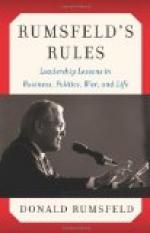Sir Redvers Buller before the troops left the camps beside the railway had six infantry brigades. There are indications in the telegrams of a reorganisation and redistribution of battalions among the brigades, so that it is hardly safe to speak with certainty as to the present composition and distribution of the commands. Apparently the left wing under Warren consists of three or four infantry brigades, the cavalry brigade, and most of the mounted infantry, and five or six batteries. Sir Charles Warren himself appears to keep the general direction of this wing in his own hands. Sir F. Clery either commands a division (two brigades), the third brigade being led by its brigadier, under Sir Charles Warren’s direction, or Sir F. Clery is supervising the whole of the infantry advance. Lyttelton has his own brigade, and Barton’s brigade covers the railhead at Chieveley. That accounts for five of the six brigades. The sixth is Coke’s, of Warren’s division. We do not at present know whether this is with Warren on the left wing or with Duller as a general reserve to be put in to the fight at the decisive moment.
The great difficulties of day-after-day fighting, which has been regarded for some years as the normal character of future battles, is to secure for the men the food and rest without which they must soon collapse, and to ensure the continuous supply of ammunition. If these difficulties can be overcome Sir Redvers Bullers has a good chance of success in his endeavour to relieve Ladysmith. Once driven from the plateau by Warren, the Boers must retire several miles before they can reach a second defensive position, and their retirement may be hastened by pressure on their flanks, which is to be expected from Dundonald’s mounted infantry and cavalry, probably now on the right or northern flank of the Boer line, as well as from Lyttelton on their left. A small reinforcement would give a fresh impetus to the British advance. If Coke’s brigade has not yet been engaged Sir Redvers Buller will know when and where to use it—either to reinforce Lyttelton for a blow against the Boer line of retreat or to reinforce Warren’s left. The arrival of the Kildonan Castle at Durban this morning, as far as we know, with drafts for some of the battalions, is better than nothing, for the drafts will give fresh vigour to the bodies that receive them. They cannot reach the fighting line before Saturday, but their arrival then may be most opportune. Still better would it be if a fresh brigade should arrive while the struggle continues. There was at least a brigade available at Cape Town a few days ago, and it could not have been better employed than in strengthening Buller at any point where he can feed it, at Chieveley if not as a reinforcement to Warren or Lyttelton, for a fresh brigade at Chieveley would enable Barton to put pressure on the Boers in his front.




